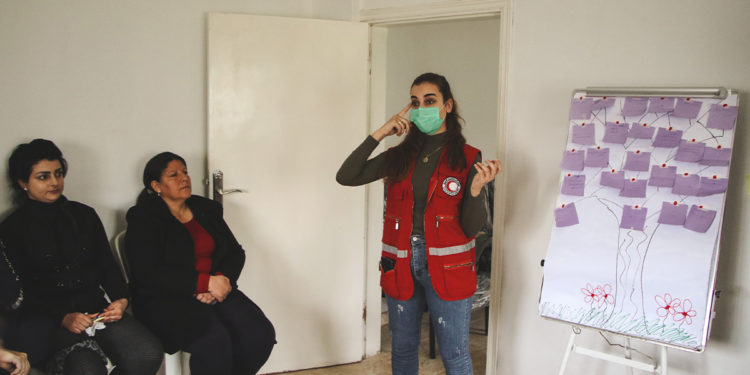
In the current times in Syria, people are in dire need to keep good mental health and high spirits in order to overcome the daily life obstacles; and to meet this type of needs, the Syrian Arab Red Crescent has developed thoughtful training workshops informing mental health care, psychological stress management and communication with children, as well as the vocational programs concerning women empowerment that help developing the economic growth and improvement in the whole country.
Based on that, the Community Service Department of SARC targeted Sameeh village, in Rural Swaida, to implement the vocational program for the women there.
What is the vocational training program?
The program was designed to train54 women in specific professions and polish their skills according to their experiences in the following fields:
1- Wool knitting using looms.
2- Handmade accessories and art of ornamentals
3- Soap industry and soaps forming
4- Patisseries
5- Stitch and sewing
At the same time, the trainees have learned the basics of marketing and product promotion.
The goals on the long-term
The training has a long-term goal to be achieved. It is that the women can join the labor market and start their own small business; and generate enough income to ensure their economic independence.

Close monitoring and exhibition
The volunteers have dedicated their best efforts to stay close to the participated women in order to help them get perfectly prepared for the exhibition with their handmade productions. The more important was the psychological support provided by the volunteers who were keen to guide the women to the proper social communications at home. They conducted a separate training that focuses on the parenting care providers.
Manual of the Parenting Care Providers:
The manual is aimed at informing caregivers to sympathetically support their parents, provide great attention to the children, listen to their problems and be aware of the potential risks they exposed to.

The vocational training and the parenting care providers training are usually delivered by SARC volunteers in parallel with their humanitarian interventions. In addition, they provide life skills, resilience in children and supportive educational sessions to the students (6 – 15 years old).


